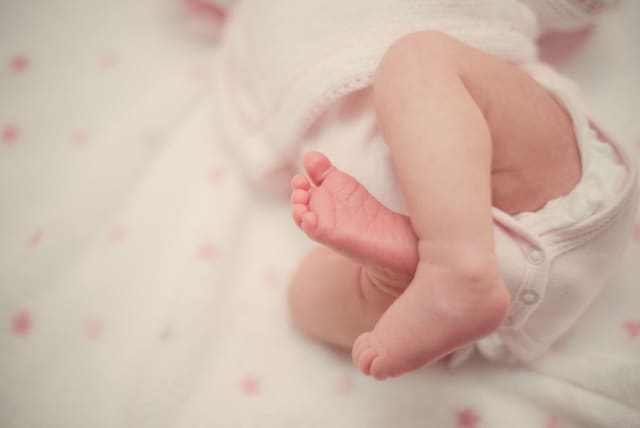High Court: Stop looking for genetic parents of Assuta embryo-swap baby

A couple who had undergone IVF at Assuta discovered during the pregnancy that they had been given the wrong embryo.
The High Court of Justice ruled on Monday to stop genetic testing to find the biological parents of baby Sofia who became the subject of the Assuta embryo affair a few months ago.
Medical testing during the pregnancy showed that neither the carrying Sofia nor her husband were genetically related to the baby, revealing that the wong embryo had been implanted during her treatments.
As soon as the mistake was discovered, other people who had been treated at Assuta at the time were tested to see if they were a match to Sofia, but the people who had been deemed most likely failed to match Sofia's DNA.
Sofia was born in October and named by her birth parents; her biological parents still hadn't been found. Testing continued with the approval of family courts and with the agreement of Attorney-General Gali Baharav-Miara. The courts had also appointed a team of three legal guardians who agreed that the testing should continue as long as the results would not affect Sofia's birth parents' standing as her parents.
Sofia's birth mother and her husband appealed to the courts to stop the testing, but the appeal was not accepted. In the meantime, the couple had been listed as Sofia's parents in the Interior Ministry with five couples and one woman have been waiting to be tested.
On Monday, the High Court of Justice decreed that the five couples and one woman waiting to be tested would not undergo the tests and ruled that the couple to whom Sofia was born will remain her parents.
"We welcome the High Court's decision which will finally allow the baby and her parents peace and quiet," said lawyer Ayelet Belcher Prigat who represented Sofia's parents. "Most of the judges recognized the first class status of the birth mother who carried the pregnancy in these circumstances."
Why did the High Court rule to stop genetic testing?
Judge Alex Stein argued that the couples waiting to be tested had very low chances of being genetically related to Sofia and therefore, the legal standing of the woman who gave birth to her is more valid than that of any genetic parent that would be found.
"You cannot forcibly turn the mother into a surrogate, and the status of the birth mother as the minor's parent can only be revoked in the most exceptional of cases," he said.
Judge Ofer Grosskopf agreed with Stein, saying that the chances of the other couples being Sofia's genetic relations were not good enough "given the lack of consent to conducting the test, given the good of the child, and given the legitimate interests of the physiological parents themselves."
Jerusalem Post Store
`; document.getElementById("linkPremium").innerHTML = cont; var divWithLink = document.getElementById("premium-link"); if (divWithLink !== null && divWithLink !== 'undefined') { divWithLink.style.border = "solid 1px #cb0f3e"; divWithLink.style.textAlign = "center"; divWithLink.style.marginBottom = "15px"; divWithLink.style.marginTop = "15px"; divWithLink.style.width = "100%"; divWithLink.style.backgroundColor = "#122952"; divWithLink.style.color = "#ffffff"; divWithLink.style.lineHeight = "1.5"; } } (function (v, i) { });

